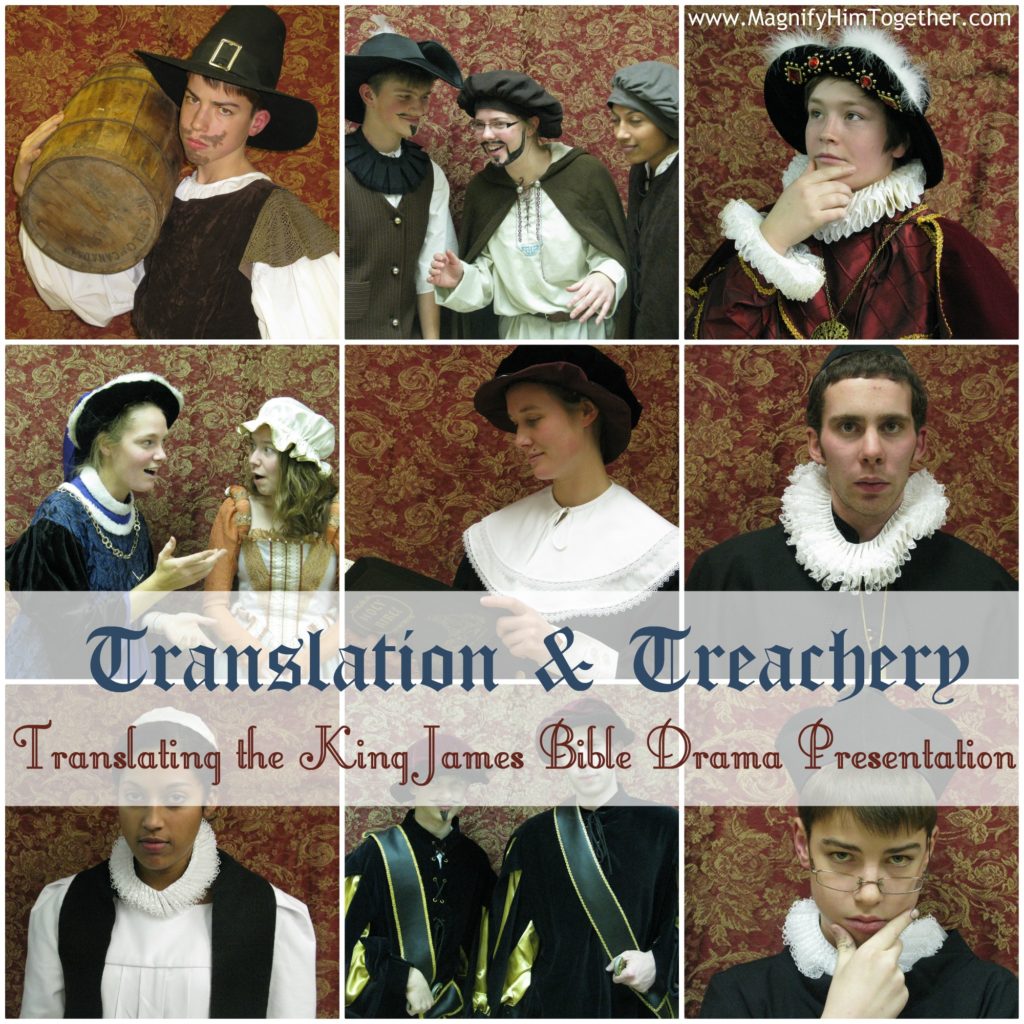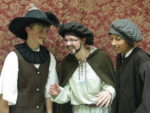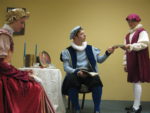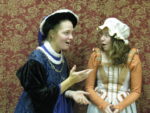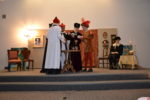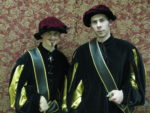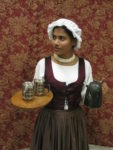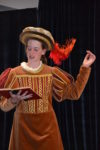Have you ever stopped to think about how much influence the King James Bible has had on society past and present? Though it was translated in Britain, it quickly spread around the world, and has even been read and broadcasted from space!
Did you know?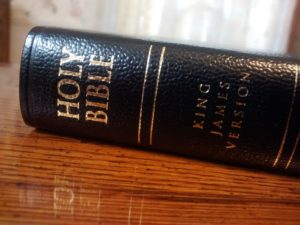
- Dozens of words and phrases we use every day are taken from the King James Bible
- The first Morse Code ever sent was from the King James Bible
- Every USA President, except one, was sworn into office on a Bible
- Britain played a pivotal role in spreading the Bible to the rest of the world
The King James Bible has influenced our language, laws, education and so much more! To mark the 400th anniversary of the King James Bible in 2011 many Christadelphian ecclesia’s around the world put on Bible exhibitions, showing the significance of the King James translation and the effect it has had on our world – but even more importantly showing how God’s word is still living and active in these dark days.
But did you know the King James Bible almost never came to be? The Catholic Church was vehemently opposed to the Bible getting into the hands of the common people and Catholic conspirators developed a plan to blow up King James (and his new Bible idea!) By the providence of God the plan was spoiled and the King James version of the Bible was finished…and put into the hands of the common people in a language they could read.
As part of some ecclesial efforts Drama Presentations were put on throughout the exhibition giving the young people an opportunity to be involved in witnessing to the world, while learning for themselves the history of the King James Bible.
The drama presentation covers the story behind the book, including:
- The death of Queen Elizabeth
- The ascension of King James
- The Hampton Court Conference
- The Gunpowder Plot
- The compilation of the Bible
Running Length: 37 minutes
Number of roles: 33 plus stage hands – some small roles can be played by the same actors
This is a link to the drama presentation titled Translation & Treachery: The Story of the King James Bible
This PDF document is the script. (WORD)
This PDF document is the roles list.
This PDF document is the prop list. (WORD)
This PDF document is the costume list.
This PDF document is the letter to Lord Monteagle.
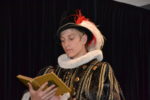
King James: James inherited the throne of |England after the death of his mother’s cousin, Queen Elizabeth I. James was never a very popular monarch among the people of England but because of his political skills, his rule was relatively stable. James married Anne of Denmark. King James is considered to have been one of the most intellectual and learned individuals ever to sit on any English or Scottish throne.
Queen Elizabeth: The reign of Queen Elizabeth I is often referred to as The Golden Age of English history. She is still one of the best loved monarchs, and one of 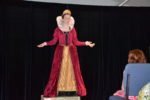 the most admired rulers of all time. Elizabeth founded the Church of England and made efforts to keep their religious power in rule. She did not like religious extremism and did not want to persecute any of her people for their religious beliefs. However, the tenacious political nature of the Catholic/Protestant split meant that her government had to take a harsher line towards Catholics than she wanted. Elizabeth had the mind of a political genius and nurtured her country through careful leadership. In appearance she was extravagant, and her character was sometimes flippant and frivolous.
the most admired rulers of all time. Elizabeth founded the Church of England and made efforts to keep their religious power in rule. She did not like religious extremism and did not want to persecute any of her people for their religious beliefs. However, the tenacious political nature of the Catholic/Protestant split meant that her government had to take a harsher line towards Catholics than she wanted. Elizabeth had the mind of a political genius and nurtured her country through careful leadership. In appearance she was extravagant, and her character was sometimes flippant and frivolous.

James Bancroft: He was the Archbishop of Cantebury and notable for his stringent opposition to Puritanism, his defense of ecclesiastical hierarchy and tradition, and his efforts to ensure doctrinal and liturgical conformity among the clergy of the Church of England. He also played a major role in the preparation of the King James Version of the Bible.
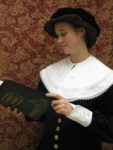
Doctor John Rainolds: John Rainolds was a Puritan, and spoke at the Hampton Court Conference on the need for a new Bible translation. The Puritans believed in the literal interpretation of the Bible because they felt that the Bible was written for the ordinary man and should be available and clear to every individual. They also were very opposed to the pomp and ceremony of the organized religions around them. He was called the most learned man in England, and he worked with the Oxford group that translated the Old Testament.
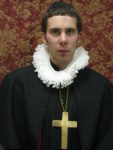 Priest: Priests believed that the Catholic religion, along with all its ceremony and rituals, was the only religion that should be followed. They believed that their role was to lead and worship God for the people. The Bible was read in Latin and in their opinion, was only to be understood and interpreted by them.
Priest: Priests believed that the Catholic religion, along with all its ceremony and rituals, was the only religion that should be followed. They believed that their role was to lead and worship God for the people. The Bible was read in Latin and in their opinion, was only to be understood and interpreted by them.
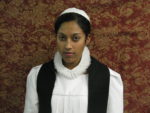
Bishops: The bishops were loyal to the Church of England. They were aware of the short-comings of the Church but they did not want to move in a direction whereby the Puritans dictated how the Church was organized and run. While they wanted the short-comings addressed, they did not want to see their position diluted.
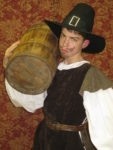
Guy Fawkes: Guy Fawkes was one of the members of The Gunpowder Plot of 1605 in which a group of Catholics attempted to blow up the Houses of Parliament and kill James I, the King of England, to protest Protestant rule. As the man chosen to light the fuse and the first captured, Guy received the most responsibility among the conspirators.

